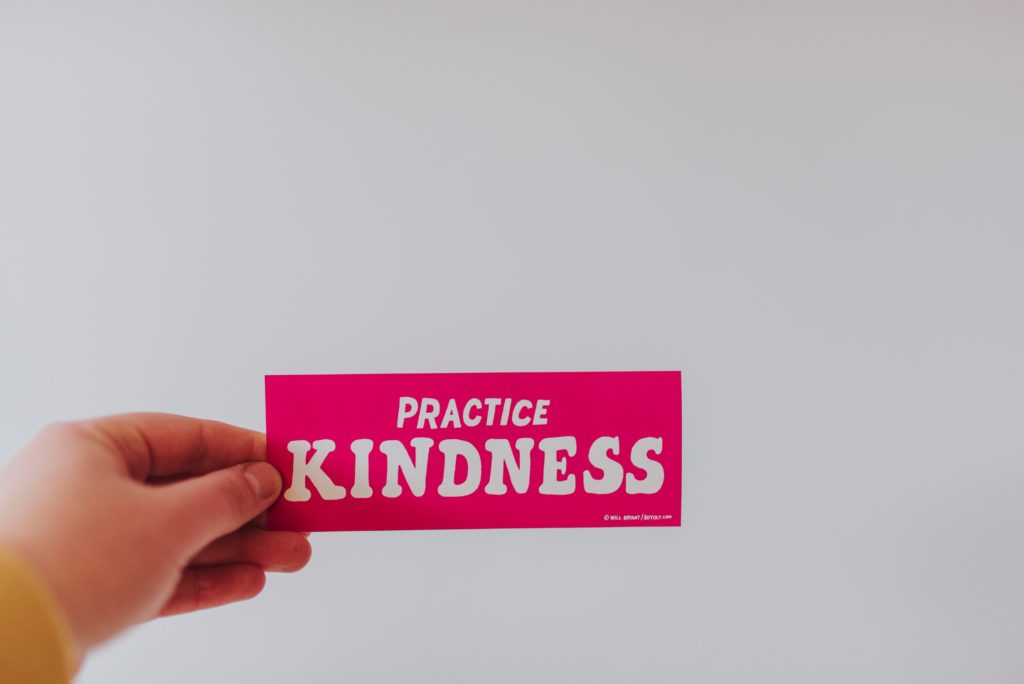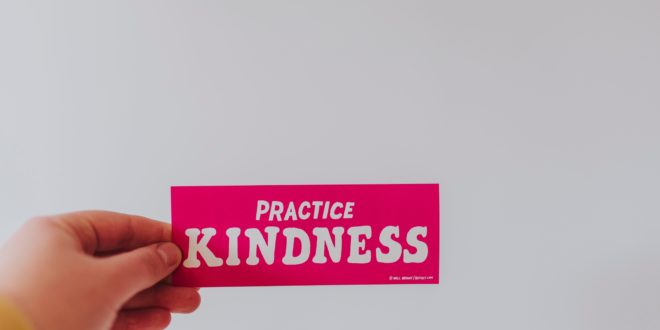 It may sound farfetched, but according to experts practicing kindness in your everyday life can have a profound impact on both your psychological and physical health. From letting a fellow driver cut in front of you during a traffic jam, to taking the time to chat to an elderly neighbour who lives alone, or offering to babysit for a couple in need of a night out, small acts of kindness can reverberate throughout your life and leave you with an unmistakable glow of positivity.
It may sound farfetched, but according to experts practicing kindness in your everyday life can have a profound impact on both your psychological and physical health. From letting a fellow driver cut in front of you during a traffic jam, to taking the time to chat to an elderly neighbour who lives alone, or offering to babysit for a couple in need of a night out, small acts of kindness can reverberate throughout your life and leave you with an unmistakable glow of positivity.
Defining kindness
Ask someone on the street what kindness means to them and they’ll likely respond with words like compassion, generosity and understanding. The truth is, kindness comes in a myriad of shapes and forms and no one definition can capture its essence.
Often, kindness can be disregarded as a trait that’s associated with pushovers or enablers. This couldn’t be more wrong, with kindness inextricably linked to happiness, contentment and even physical health.
Harnessing the power of kindness
On a personal level, random acts of kindness work to increase your sense of overall happiness by promoting gratitude. By recognising and nurturing the needs of other you’re heightening your own sense of good fortune, as well as tapping into emotions like compassion and empathy. In turn, this creates meaningful bonds and a sense of interconnectedness with others. In this context, kindness lessens any feelings of alienation or isolation an individual may feel and strengthens important emotions like a sense of community and belonging. Kindness can also spark a sense of giving back and putting the needs of yourself before others, which is why volunteering can be such a powerful activity.
Some health experts even assert that practicing kindness can spark physical benefits. Studies show that enduringly kind people have 23% less cortisol (aka the stress hormone) and also age at a slower rate than their inconsistent counterparts. There’s also evidence that kindness can lower blood pressure levels, stimulate serotonin production, boost the immune system and combat negative emotions.
Mastering the art of kindness
The good news is, practicing kindness is easier than you might think.
“It’s kind of like weight training,” explains Dr. Ritchie Davidson of the University of Wisconsin. “We found that people can actually build up their compassion ‘muscle’ and respond to others’ suffering with care and a desire to help.”
Learn to radiate positivity
Take the time to chat to the person swiping through your groceries at the supermarket, compliment someone on their smile, be patient with your loved ones, engage in a meaningful conversation with a college. Basically, go out of your way to make someone’s day that little bit brighter.
Lead by example
One of the most profound ways to cultivate kindness is to practice what you preach. This means leading by example and embracing opportunities to teach others about the importance of traits like compassion, charity and selflessness. If you have grandkids you’re already halfway there!
Still need more inspiration? Take cues from Mother Teresa, who once said “We cannot do great things on this earth, only small things with great love.”








Join the Discussion
Type out your comment here:
You must be logged in to post a comment.